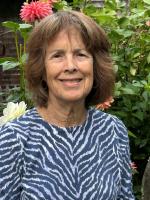Ann B. Parson—The Birds of Dog: An Historical Novel Based on Mostly True Events
AN HISTORICAL NOVEL BASED ON MOSTLY TRUE EVENTS
Ann B. Parson
Luminare Press, November 10, 2023
Paperback, $20.00, eBook, $9.99
ISBN: 9798886792744, ASIN: BOCM17F1J4
Parson reports:
The Birds of Dog, an historical fiction, opens in the early days of the Boston Society of Natural History (BSNH), closes with the founding of the Audubon Society, and along the way brings together diverse stories about America’s emerging sciences and its first scientists.
I’ve always been interested in the history of science. Several years ago, after hearing an intriguing story about why the BSNH, which became Boston’s Science Museum, began, I started adding stories to a folder. A Boston family, the Pickerings, with four forgotten scientists in its midst, caught my attention. Bit by bit, I fashioned a tale around the zoologist Charles Pickering; his cousin Catharine, a curator’s assistant who grows leery of trigger-happy hunters, and James Cutting, a brilliant inventor.Although the word “science” was in use before 1800, one surprise of my research was finding that science itself didn’t become a special discipline until the early 1800s. It then sub-divided into countless branches of study with lightning speed.
Personal biases—my love of nature and loathing of guns—led to my storyline. At first I wasn’t sure whether to make the book fiction or nonfiction. An agent’s suggestion that fiction can be a liberating approach to history proved true. How fun to conjure up a conversation between Benjamin Silliman, the Yale chemist, and Charles Dickens, then visiting Boston, about animalcules in pond water and whether the water was safe to drink!
As a science writer who covers medicine, technology, and the environment, I was prepared to self-publish this book, my first work of fiction. Luminare Press has been a great help. Still, I’ve missed having an agent and publisher’s judgment and support at times. Self-promoting a book is not easy. The best way forward, I’m finding, is to trust that others will be as fascinated by the book’s contents as you are.
What would I do differently? The book took 14 years because I kept putting it on a back burner. I wish I had just kept at it. Then again, as the years passed, I kept finding material that made the storyline stronger.
Contact info:
- Ann Parson, parson-a@outlook.com, https://annparson.com/, Facebook: https://www.facebook.com/ann.parson.9/, Linked-In: https://www.linkedin.com/in/ann-parson-8b01a917
- Book: The Birds of Dog: An Historical Novel Based on Mostly True Events
- Publicist: Lissa Warren, 617-233-2853, lissawarrenpr@gmail.com
NASW members: will your book be published soon? Promote it by submitting your report for Advance Copy.
Tell your fellow NASW members how you came up with the idea for your book, developed a proposal, found an agent and publisher, funded and conducted research, and put the book together. Include what you wish you had known before you began working on your book, or had done differently.
See https://www.nasw.org/advance-copy-submission-guidelines.
View Advance Copy archives at https://www.nasw.org/member-article/advance-copy.
Thinking of writing a book? If you are a NASW member, you may access a list of more than 200 books and online resources to help you craft your book proposal, find an agent and funding sources, negotiate your contract, learn about self-publishing, publicize and market your book, and more at https://www.nasw.org/article/write-book.
View the recording of a recent Advance Copy Virtual Business Chat, A Primer for Authors on Book Publicity. NASW member login required.
Send book info and questions about book publishing to Lynne Lamberg, NASW book editor, llamberg@nasw.org.
Follow @LynneLamberg on Twitter for news about science/medical books, writing, and NASW authors.
Banner image adapted from original photo by Ann Parson.
Advance Copy
The path from idea to book may take myriad routes. The Advance Copy column, started in 2000 by NASW volunteer book editor Lynne Lamberg, features NASW authors telling the stories behind their books. Authors are asked to report how they got their idea, honed it into a proposal, found an agent and a publisher, funded and conducted their research, and organized their writing process. They also are asked to share what they wish they’d known when they started or would do differently next time, and what advice they can offer aspiring authors. Lamberg edits the authors’ answers to produce the Advance Copy reports.
NASW members: Will your book be published soon? Visit www.nasw.org/advance-copy-submission-guidelines for information on submitting your report.
Publication of NASW author reports in Advance Copy does not constitute NASW's endorsement of any publication or the ideas, values, or material contained within or espoused by authors or their books. We hope this column stimulates productive discussions on important topics now and in the future as both science and societies progress. We welcome your discussion in the comments section below.




